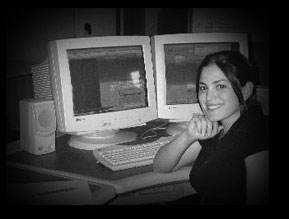|
|
physics & astronomy |
|
|
HOME FACULTY COURSE LIST CLASS SCHEDULE STUDENTS INTERNSHIPS LINKS Major / Minor Requirements / Introductory Sequence / Summer Course Approval |
ABD C D
|
Majors and minors are possible in astronomy, physics, as well as in several interdisciplinary subjects. Special majors in interdisciplinary subjects are arranged in conjunction with the relevant second department at Barnard. A student interested in such possibilities should talk to a faculty member early on in the semester. Some possible majors and minors are : |
||
|
• Astronomy • Physics • Astrophysics • Biophysics • Chemical Physics • Engineering Physics • Mathematical Physics
|
|
|
|
Requirements for the ASTRONOMY Major |
||
|
The courses required for the major in astronomy are:
Students may substitute a Columbia College 3-semester calculus-based introductory physics sequence with the lab, as in the physics major. Calculus through IIIS/IVA is required, with additional work in mathematics recommended. Also:
Students who have taken AST V 1753-4 or C 1403-4 may substitute an additional 3000-level course for AST C 2001-2. Finally, students are required to take four 3000-level AST or PHY courses, including at least one of AST 3102 or PHY 3003 Mechanics, and selected so that at least six total points of 3000-level lecture classes are AST courses. Some of the AST courses offered in recent years include: • AST C 3101: Stellar Structure and Evolution• AST C 3102: Planetary Dynamics and Physics of the Solar System• AST C 3601: General Relativity, Black Holes, and Cosmology• AST C 3602: Physical Cosmology and Extragalactic Astronomy • AST C 3646: Observational Astronomy Students planning to study astronomy or astrophysics in graduate school are strongly urged to take PHYS W 3003, 3007-8, 3006-G4023, some additional courses in mathematics, and Computer Science (CSC) W 1003 Programming in C, or W 1005 Fortran Programming. Note: When any of the required courses is not being given, the department will recommend appropriate substitutions. |
||
|
Requirements for the PHYSICS Major |
||
|
The courses required for the major in physics are: • PHY BC 2001: Physics I: Mechanics • PHY BC 2002: Physics II: Electricity & Magnetism • PHY BC 3001: Physics III: Waves & Optics In lieu of the above, any 3-semester Columbia introductory sequence acceptable for the physics major in Columbia College will do (e.g. PHY C 1601-2, 2601, taken with PHY 1691-3). The accelerated 2-semester Columbia College sequence PHY C 2801-2 is also acceptable. Calculus through IIIS/IVA is required, with additional work in mathematics recommended; e.g. Math E 1210x, y: Ordinary Differential Equations, APMA E 3102y: Applied Mathematics II. The calculus sequence should be completed by the end of the sophomore year. At the upper level the following courses are required: • PHY W 3003: Mechanics • PHY W 3007: Electricity & Magnetism • PHY W 3008: Electromagnetism Waves and Optics • PHY W 3006: Quantum Physics • PHY G 4023: Statistical Physics Also required are 6.0 points total of advanced lab work, preferably PHYS BC 3086 and 3088, taken concurrently with their cognate Columbia lecture courses. Alternately, students may opt for repeated enrollment in PHYS W 3081, Columbia's 1.5 point EKA laboratory, or Barnard's PHYS BC3082. Finally, the student must take computer Science W 1003 (Programming in C), W 1005 (Fortran Programming), or PHY W 3083 (Electronics Laboratory). Students planning to study Physics in graduate school should include several 4000-level electives in their senior year program.
|
||
|
Requirements for the ASTROPHYSICS Major |
||
|
Students wishing to major in astrophysics should consult a member of the department. |
||
|
INTERDISCIPLINARY Major |
||
|
Special majors in, for example, biophysics, chemical physics, engineering physics, or mathematical physics are all possible and are arranged in conjunction with the relevant second department at Barnard. A student interested in such possibilities should speak to a faculty member early on (i.e., by late fall of her sophomore year) in order to permit the most effective construction of her program of study and the appropriate petition to be made to the Committee on Programs and Academic Standing. The latter is a straightforward procedure associated with the declaration of all special majors at Barnard.
|
||
|
Requirements for the PHYSICS Minor |
||
|
Five courses are required for the minor in physics. They are: any three-semester introductory sequence acceptable for the major (see Introductory Sequence page); and two 3-point courses at the 3000-level.
|
||
